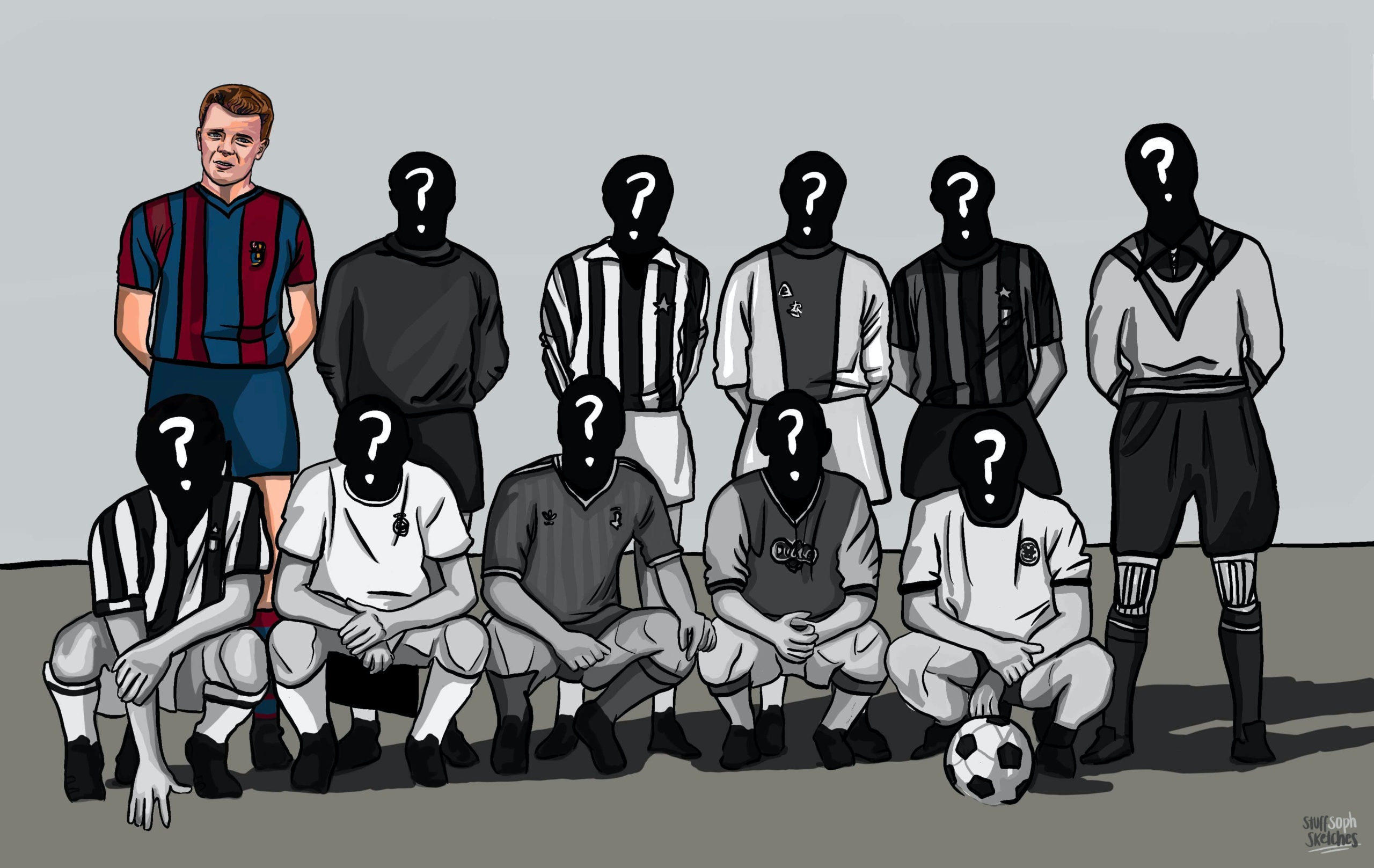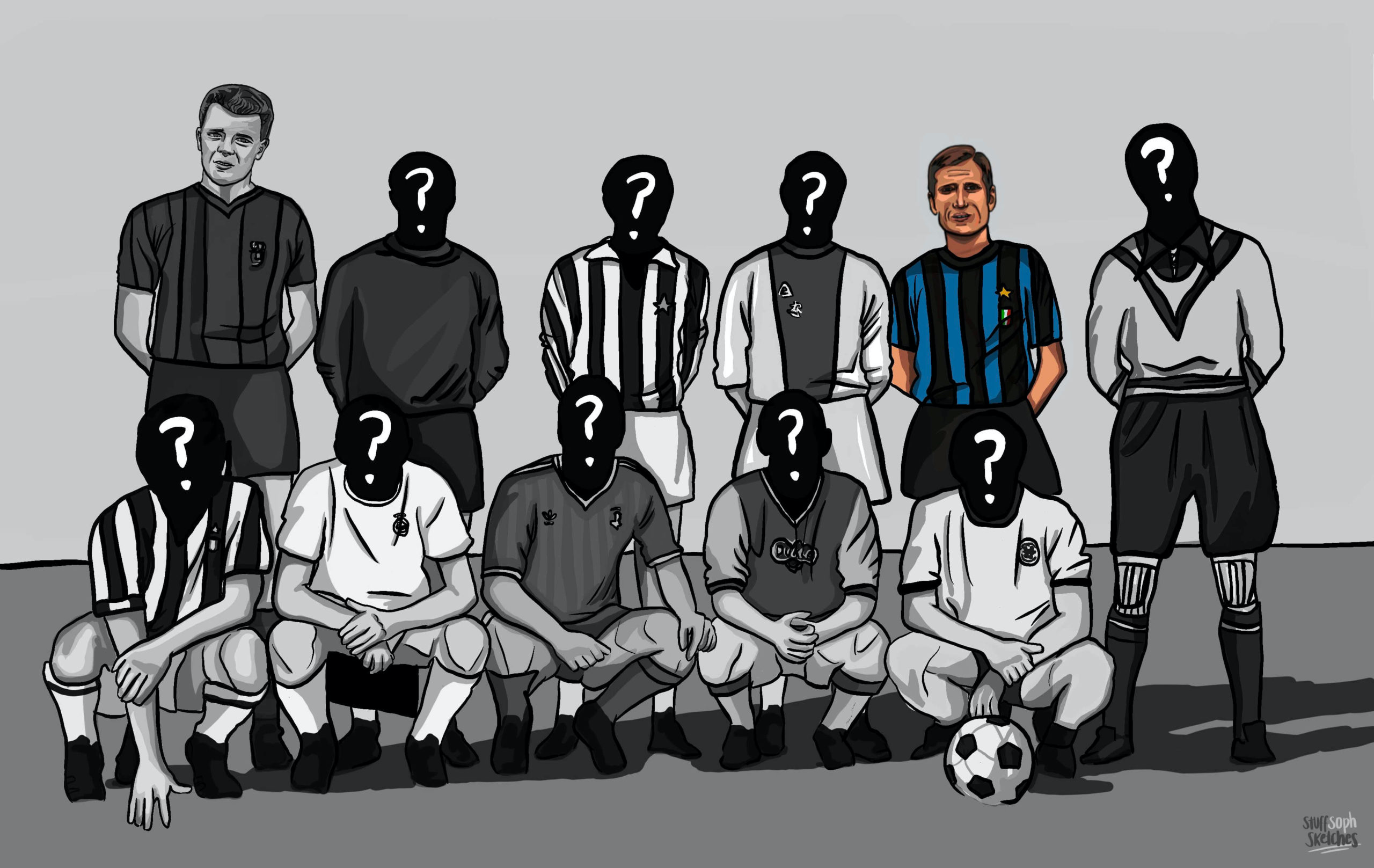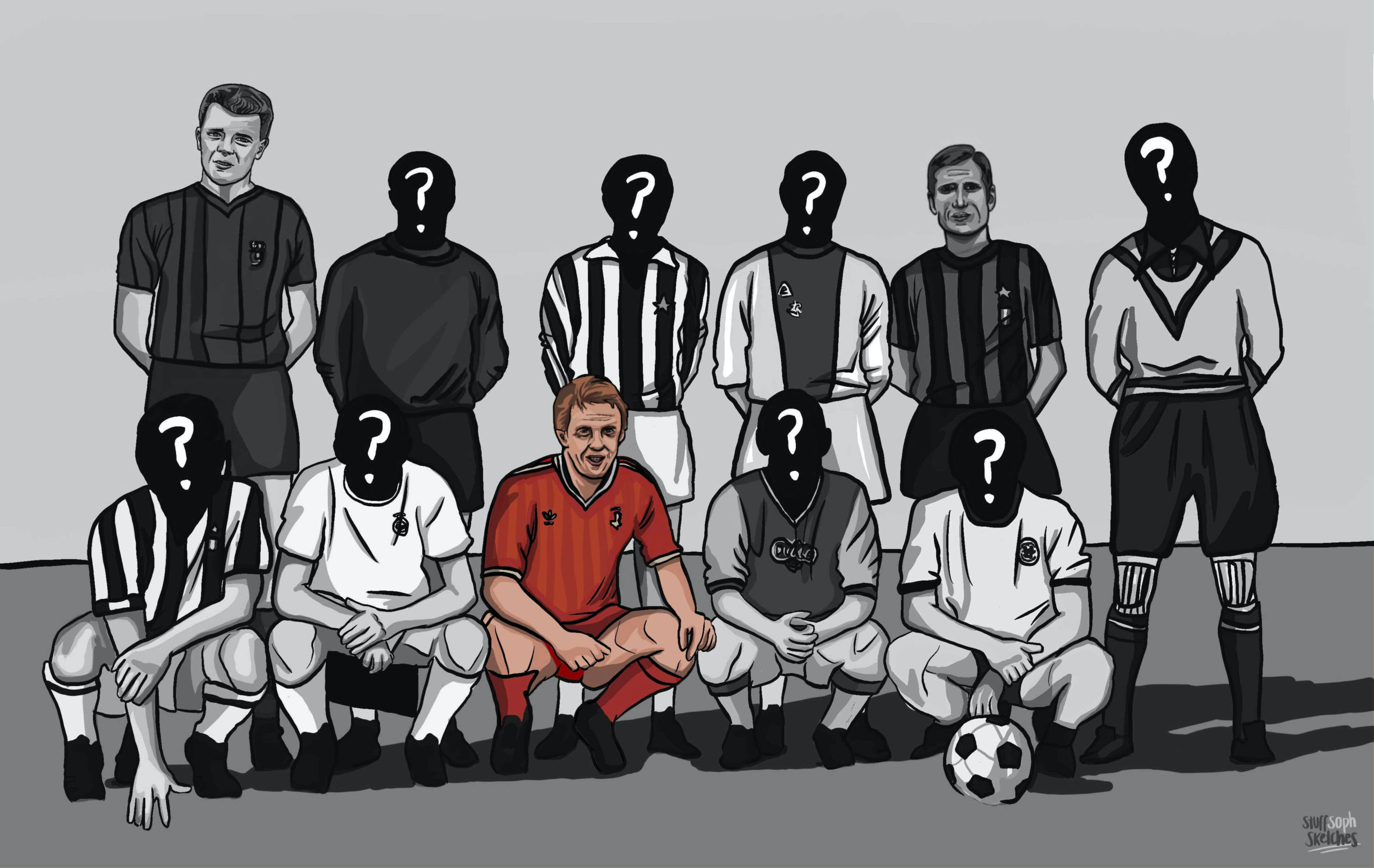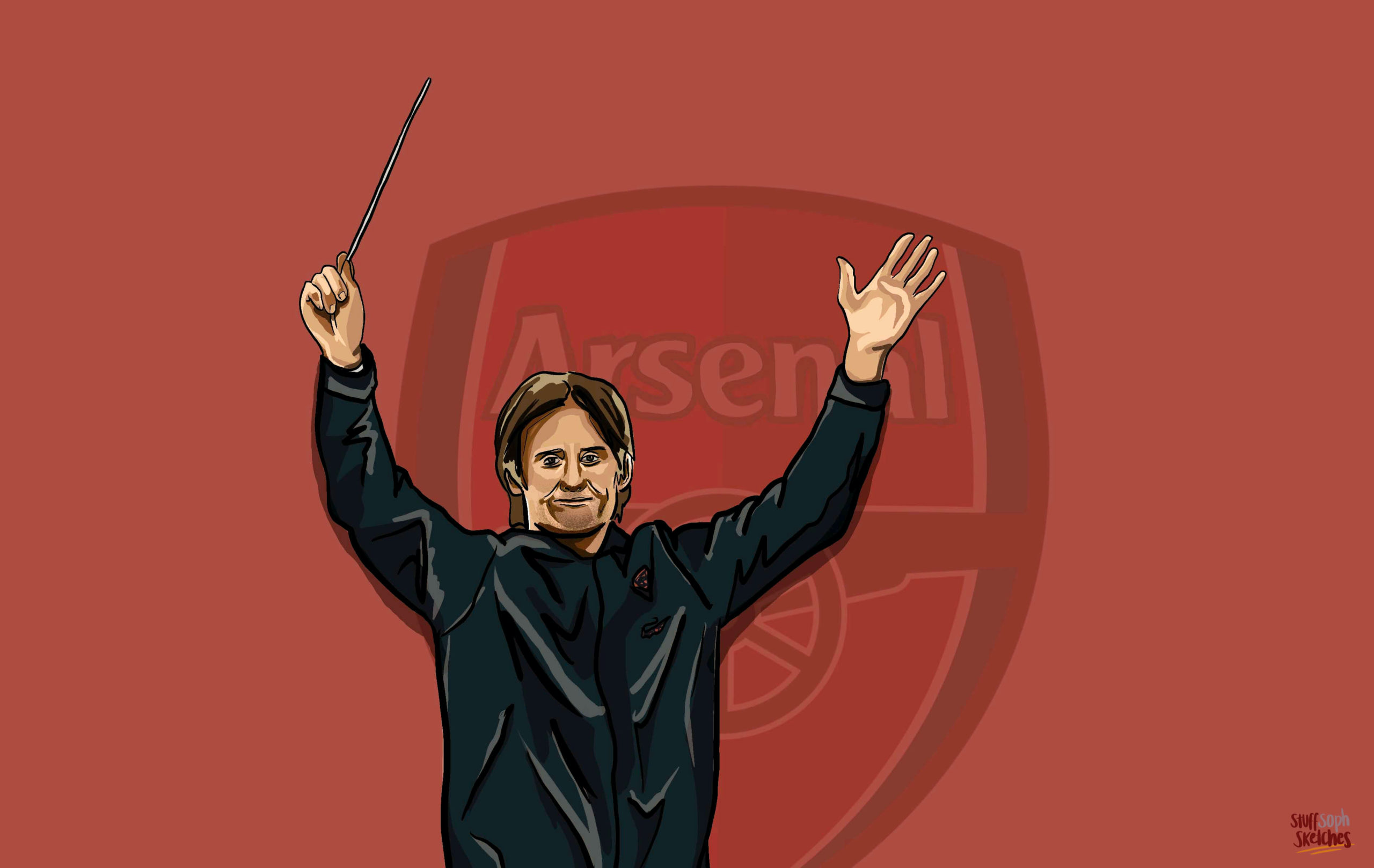Long before the Premier League, YouTube, mega sponsorship deals or player emoji’s, the world of football was made up of club legends and heroes, players who, however fleetingly, made the game beautiful. Their feats were passed on, not by sharing a video of them at training, but by word of mouth. Someone’s brother’s uncle once saw them at a tin-pot ground and would regale everyone with tales of what they saw that day. These players took the mundane and made it special; they elevated football from the awful pitches and barbaric practices and transformed the sport into a thing of wonder. These aren’t players who have hours of montage footage, in some cases there is little to no video evidence of their talent at all, just match reports and eye-witness accounts. Without doubt, there are players who are not remembered as they should be – players whose efforts contributed to the growth of iconic clubs and players who paved the way for future stars, many of which have been forgotten in the relentless march into the future.
One such player is László Kubala, who for ten glorious years, thrilled the Barcelona faithful with his brilliance on the pitch and exuberance away from it. So much so that in 1999, Barcelona’s centenary year, the striker was voted the club’s Greatest Player of All Time. This was of course Pre-Lionel Messi, but it came after the likes of Johan Cruyff. Even if Kubala was given second place today, it raises the question: why is it that football fans know so little about a player that Barcelona Football Club once held in such high regard?
Having moved to Czechoslovakia in 1946, allegedly to avoid military service, Kubala left ŠK Slovan Bratislava, returned to Hungary and signed for Vasas SC in April 1948. Less than a year later, in January 1949, Kubala and his wife fled Soviet-occupied Hungary once again, passing through Austria before settling in Italy. Here, Kubala signed for a local team called Pro-Patria and became the greatest to ever play for the Serie C club. Denounced by Vasas as a delinquent for his defection, and supported by the Hungarian Football Federation, FIFA imposed a one-year international ban on Kubala. Faced with extradition for fleeing without authorisation, alleged financial crimes and failure to complete military service, Kubala and his wife moved to a refugee camp under US administration in Cinecitta. It was in the camp that Kubala, alongside his fellow countrymen, formed a football team which later toured Spain in 1950.
As legendary as his reputation was on the pitch, Kubala’s party lifestyle away from it was equally so.
The Spanish tour would change Kubala’s career forever. In possession of a draft contract from Real Madrid, the striker was snatched from under the noses of Los Blancos by a man Kubala considered a father figure – El Sami – Pepe Samitier. Legend has it that El Sami was able to take advantage of Kubala’s infamous drinking habits, helping persuade him to sign for the Catalan giants instead. Despite the signs pointing towards Barcelona, Samitier convinced a half-drunk Kubala that their train was heading to Madrid. After meeting Barcelona’s negotiators, Kubala withdrew his draft contract with Madrid, but only on the grounds that he would be granted the same financial terms and that the club would employ his brother-in-law Ferdinand Daučík (the Czechoslovakian national coach). Terms agreed, Kubala became the highest paid player in the club’s history, with the second-best paid member of staff being his brother-in-law. Unaffected by his newfound wealth, Kubala was neither selfish nor egotistical. His presence was said to have generated such confidence among his teammates that they felt as if they couldn’t lose when he played. Kubala’s commitment to the team often meant that he would even play when injured, furthering his reputation at the club.
Due to his FIFA imposed ban, Kubala did not play a competitive game for nine months. By the time he was allowed to play again, the league season was over with Barcelona finishing fourth. Yet, the Copa del Generalísimo was still to play for. In just seven competitive games, Kubala had scored six goals and brought the trophy back to Catalonia, becoming an instant hero in Barca’s ranks. But the good times were only just beginning…
Kubala was the complete striker: deadly with both feet, quick, physical, and accurate, as well as a great dribbler with remarkable vision. He was credited by Luis Suarez (Inter Milan’s playmaker of the 1960’s) as being the first player to curl a freekick over a wall. Suarez claimed that Kubala ‘was an extraordinary player who brought to Spain a series of innovative improvements and perfections. He united physical power and exceptional technique’.
In 1951-52, Kubala’s first full season with Barcelona, the star scored twenty-six goals in nineteen league games whilst winning the league title, domestic cup, domestic Super Cup, Latin Cup and the Copa Martini & Rossi. This magnificent trophy haul, achieved in a single year by El Barca de les Cinc Copes (The Barca of the Five Cups), has only since been bettered once, by Pep Guardiola’s Barcelona when they won six titles in 2009.
Miraculously, in the 1952-53 season, Kubala made a full recovery after being diagnosed with tuberculosis which threatened to end his career. He returned to help Barcelona retain the title and the Copa del Genralísimo, scoring in the final 2-1 win over Athletic Bilbao. During his time with Barcelona, Kubala went on to win two more league titles, three more domestic cups and two Inter-Cities Fairs Cups, scoring 280 goals in 345 games.
As legendary as his reputation was on the pitch, Kubala’s party lifestyle away from it was equally so. On wild nights surrounded by alcohol and flamenco dancers, Kubala was often joined by a mixture of Barcelona directors, journalists, and teammates. Hours before an important fixture, Angel Mur (the club masseuse) recalled launching the drunk striker into a cold shower before giving him a massage with pure alcohol, a cup of black coffee and letting him nap for a few hours. Kubala played like nothing happened. At the time, his behaviour was simply considered to be in good jest and a form of team bonding.
This all changed when Barcelona appointed the authoritarian Helenio Herrera in 1958 as an attempt to break Real Madrid’s grasp on La Liga. In order to compete with Madrid, Herrera believed that his players required a strict diet and fitness regime – with zero tolerance on smoking or drinking. While Barca did break Madrid’s stranglehold, winning La Liga and the Copa del Generalísimo in 1959 and the league again in 1960, Kubala fell out of favour due to his excessive drinking. On one occasion, when asked ‘have you anything to declare?’ at Barcelona airport, Herrera recalls Kubala’s answer being ‘yes, two bottles of whiskey, they’re in my stomach. Do you want to take an X-ray?’. Clearly, this power struggle could not continue. After losing 6-2 to Real Madrid in a European semi- final, dropping Kubala in the process, Herrera was sacked in 1960. The directors at Barcelona had certainly shown where their loyalties lay.
Aside from all the trophies that Kubala and Barcelona won together, the European Cup continued to evade them. It wouldn’t be until 1992 that Barcelona would eventually win their first European Cup, defeating Sampdoria 1-0 at Wembley. During its formative years, Real Madrid dominated the European Cup, winning the first five trophies. In 1960-61, Barcelona knocked Madrid out of the competition, becoming the first team to defeat them in the European Cup. Now Barcelona wholeheartedly believed they could go on to win the trophy. Against Benfica, the Catalonians entered the final as favourites and took the lead after twenty minutes. Benfica responded strongly, advancing to a 3-1 lead. Kubala then hit both posts and despite a late second goal for Barcelona, Benfica became the first team other than Real Madrid to win the European Cup.
For a brief spell in 1961, shortly after the loss to Benfica, Kubala retired from football. Two years later, he returned to take up a player-coaching role at Espanyol before doing the same at Zürich in 1965. Kubala’s footballing career then came to an end in 1967, playing for Toronto Falcons in Canada.
Throughout his career, Kubala remarkably represented three separate countries – Czechoslovakia, Hungary and Spain (four if you include Catalonia) – as well as representing two Europe XI teams in 1953 and again in 1965. By the age of 21, he had played his first and last international games for both Czechoslovakia and Hungary, scoring four goals in the process. Albeit one of the greatest Hungarian footballers of all time, Kubala was not a member of the “Magical Magyars” side who famously destroyed England at Wembley and suffered defeat only once in six years. Who knows, if Kubala had been playing perhaps Hungary would have won the World Cup in 1954 as their talent undoubtedly warranted. Kubala’s international career ended in 1961, playing for Spain – the country in which granted him citizenship after his move to Barcelona. For Spain, he scored nine goals in nineteen games but never actually represented them at a major international tournament. Arguably, it is for this reason that so few fans outside of Barcelona remember his extraordinary talent.
Fifty years before Messi and Ronaldo there was Kubala and Di-Stefano – the two best players in the world – playing for Barcelona and Real Madrid. While Di-Stefano is rightfully remembered as one of the world’s greatest footballers, László Kubala is name that is long-forgotten. This seems ridiculous when Kubala was picked to play first division football at the age of fifteen and represent on an international level when he was seventeen. Let’s not forget that he flourished in Spain, where the opposition’s only tactic was to foul him by any means possible. Kubala was a man who left his homeland in search of a better life, who fell in love with Barcelona and vice-versa; a man who deserves to be remembered as more than a forgotten hero.



